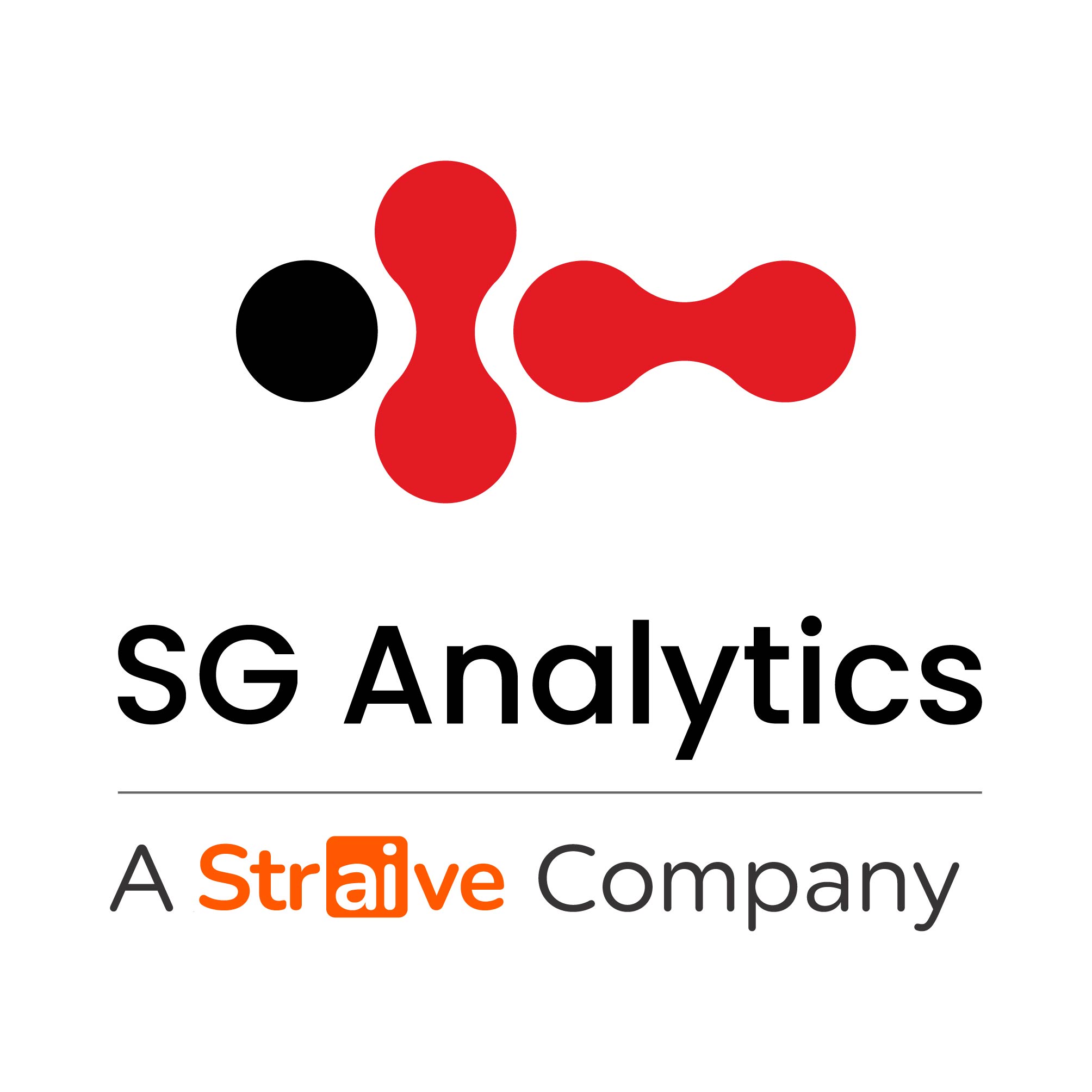- Resources
- Blog
- Top Cloud Services Every Data Engineer Should Know in 2026
Top Cloud Services Every Data Engineer Should Know in 2026
Cloud Data Engineering
Contents
September, 2025
Why Are Cloud Services Essential?
Cloud services serve as the backbone of modern enterprises as they have proven their worth in enabling agility, scale, and innovation. Whether it is a new startup or a Fortune 500 giant, each organization now aspires to shift workloads to the cloud.
Legacy systems struggle to keep up with the speed and complexity of contemporary data ecosystems. In this situation, data engineers, managers, and modernization specialists require cloud platforms that provide the complete flexibility to store, process, and analyze massive volumes of data. Relevant solutions allow teams and clients to access data anytime, anywhere, in any format.
A cloud computing, storage, and data services company also helps eliminate the troubles of infrastructure management for data engineers, which leads to more time being available to design robust pipelines. Engineers will essentially avoid worrying about hardware or uptime. Besides, whether it is real-time analytics, machine learning models, or enterprise data lakes, cloud solutions are at the core of it all. If you are a data leader or an engineer building the future of data, this piece explains the top cloud services to know and what to do next.
Why Cloud Services Matter for Data Engineers in 2026
Data engineering demands significant resources to accomplish most business modernization or digitalization objectives. As AI, real-time analytics, and automated decision-making continue to attract corporate leaders, the infrastructure that powers these capabilities must be scalable, dynamic, and collaboration-enabling. That is where cloud services come in.
Data engineers are redefining how they build extract-transform-load (ETL) pipelines. Veterans and newcomers in the field of data engineering pursue the following goals:
- Orchestrating multi-cloud architectures,
- Overseeing Kubernetes clusters,
- Delivering data mesh environments,
- And optimizing for best performance, especially for hybrid systems.
The above goals reflect the complexity of fulfilling modern stakeholder demands. Therefore, tools that are resilient, scalable, and deeply integrated attract professional data engineers and their peers in allied disciplines.
Read more: What Does Cloud Security Consolidation Mean for Enterprises?
The Importance of Cloud Services in Data Engineering
Cloud services now offer pre-built, serverless options that speed up various development cycles. As a result, they allow engineers to experiment, deploy, and iterate faster than traditional models. Given the growing popularity of infrastructure-as-code, Cloud platforms effectively enable most pragmatic DevOps services for data engineering and analytics teams via continuous integration (CI) and continuous delivery (CD) integrations.
In 2026, the demand for near-instant insights requires stream-based architectures powered by services like Google Cloud Dataflow, Amazon Kinesis, and Azure Stream Analytics. Cloud-native tools are no longer optional. They are fundamental to data engineering success.
Best Cloud Services for Data Engineers in 2026
Data engineers need more than storage scalability, given the evolving requirements for compliance, enterprise data processing, and disruptive tech tools. That is why they seek seamless orchestration, loss-free transformation, cybersecurity threat monitoring, and multi-cloud data connector features. Considering such factors, the following are among the top cloud services dominating the market in 2026.
1. Google Cloud Platform (GCP)
GCP has its unshakeable position due to its deep integration with AI-ML tools that maximize the performance of data pipelines. While BigQuery is unmatched for serverless, real-time SQL querying over massive datasets, Dataflow and Dataproc excel at scalable data processing. Besides, Vertex AI acts as a unifying force, ensuring harmony between data lifecycle solutions, engineers, and machine learning teams.
2. Amazon Web Services (AWS)
AWS leads in scope and ecosystem maturity. Stakeholders can rely on Glue, which simplifies ETL tasks with built-in crawlers. Schema inference is equally important and easy to implement. In addition to Glue, Redshift garners much praise. After all, it continues to be a high-performance analytics engine. By integrating with Lambda, S3, and EMR, AWS powers a full-stack environment. It is also less rigid, allowing tailored configurations for distinct data workflows.
3. Microsoft Azure
Azure Synapse Analytics equips data engineers with big data and data warehouse functionality in one platform. Users can leverage the data factory that allows for complex pipeline management across cloud and on-premises sources. If an enterprise already relies on Microsoft ecosystems for documentation, data capture, and predictive modeling services, it makes sense to embrace MS Azure and the seamless experience it offers.
4. Databricks
It is not a traditional cloud platform. However, Databricks has been indispensable to corporations. It is built on Apache Spark. Stakeholders can leverage it across AWS, Azure, and GCP. Databricks also supports collaborative, large-scale data engineering and machine learning workflows. The Lakehouse paradigm introduced by Databricks demonstrates its role in refining how global organizations think about data architecture.
5. Snowflake
Snowflake facilitates creativity in cloud data warehousing with its elastic compute-storage separation. Its intuitive user interface, scalability benefits, and stable data sharing make it a go-to for cross-team collaboration. In 2026, Snowflake’s support for Python through Snowpark remarkably empowers data engineers who yearn for more programmability.
Read more: Data Fabric and Architecture: Decoding the Cloud Data Management Essentials
How to Choose the Right Cloud Service for Your Data Projects?
Choosing a cloud platform is never a one-size-fits-all decision. It must align with your company’s data volume, team skills, use cases, compliance needs, and budget.
Step 1: Understand Your Workload
You want to ask your team the following questions:
- Is it a project analytics-focused or transformation-oriented?
- Does the team or client deal with real-time data, or is the batch jobs approach acceptable?
Remember, platforms like BigQuery and Redshift work best for analytical queries. Glue and Dataflow are better in the case of complex transformation pipelines.
Step 2: Consider Your Existing Ecosystem
If an institution is deeply tied to Microsoft tools, selecting Azure offers hassle-free integration. Licensing benefits might also be available. Similarly, GCP is an inevitable choice for companies prioritizing AI-driven insights via Google-centric workflows.
Step 3: Evaluate Tooling and Automation
Data professionals must look for cloud engineering services with robust support for CI & CD pipelines, infrastructure-as-code, and threat monitoring. For instance, platforms like Databricks and AWS Glue provide APIs and software development kits (SDKs) that allow easy automation.
Step 4: Check Security and Compliance Implications
Dealing with sensitive information is no longer limited to the finance and healthcare industries. Other sectors are also witnessing a tide of specific regulatory requirements regarding enterprise data operations that might vary from country to country. Therefore, data engineering firms must ensure the platform complies with your region’s data governance laws, such as the following:
- The EU’s General Data Protection Regulation (GDPR)
- Health insurance portability and accountability act (HIPAA) in the US
- India’s digital personal data protection (DPDP) act
Multi-region consent tracking support and end-to-end encryption options are simply non-negotiable at this point, no matter where your headquarters might be or whether your market excludes the above regions.
Step 5: Examine Cost Transparency
Cloud-related pricing methods vary quite dramatically. You will find that BigQuery charges per query, but Redshift follows a node-based pricing. In the case of Snowflake, credit-based consumption comes into play. Consequently, understanding how costs scale with usage is essential to avoid billing surprises that will likely lead to going beyond the initially approved budget.
Step 6: Do Not Neglect Skill Set Availability
A responsible leader will choose a cloud platform that others can confidently operate without spending precious human work hours on lengthy upskilling sessions. GCP might be ideal for a Python-enthusiast team. Likewise, AWS might be best for teams with deep cloud operations expertise. In short, training requirements and learning curves should factor into the decision after inspecting the existing skill set within the team.
Read more: Top Data Engineering Tools to Watch Out
Future Trends by 2030: Where Cloud Data Engineering is Headed
The next five years will bring fundamental shifts in how data engineers work and what role cloud services will serve to improve their journey.
1. The Rise of Multi-Cloud Strategies
All global organizations are adamant about avoiding vendor lock-in. They do not want to be told that they cannot migrate to another platform. So, data engineers will be expected to work across AWS, Azure, GCP, and specialized providers like Snowflake or Databricks. In turn, cloud-agnostic tooling, accessible and modifiable without hurting compatibility, will gain priority.
2. Data Mesh and Federated Governance
Centralized data lakes are less likely to derail the progress of decentralized data products managed by domain teams. Furthermore, this shift will necessitate cloud computing that helps enhance observability, lineage tracking, version control, and decentralized policy enforcement.
3. Serverless Architectures Will Dominate
Manual cluster management is losing its relevance. Instead, serverless computing engines, encompassing BigQuery, Snowflake, and Azure Synapse support, will become the default. These services automatically scale with workloads. In other words, they reduce operational overhead where data engineers had to rely on manual tweaks to resource allocation on a case-by-case basis.
4. Generative AI Integration
By 2030, data engineers will need to build pipelines after collaborating with AI agents. Agentic AI will increase data professionals’ productivity, letting them optimize, debug, and write code in a shorter time horizon. Cloud platforms will also offer embedded generative AI solutions that support many tasks, ranging from schema design to performance tuning.
5. Real-Time Everything
Stream-first architecture will become the universal standard. No matter the industry or company scale, Apache Kafka, AWS Kinesis, and GCP Pub/Sub will be integral to modern pipelines. As a result, stakeholders must expect a shift from batching to near-instant ML output for live dashboard visualizations. Essentially, real-time reporting updates will dominate.
6. Data Engineering as a Service
The world is already noticing platforms like Astronomer and Prefect. Their growing presence is fueled by how they offer and host data pipeline orchestration services. In an identical manner, by 2030, cloud platforms will offer entire pre-configured environments tailored to specific data needs. That is why less developmental effort will be required, while dedicated human and AI assistants will streamline customizations.
Final Thoughts: Choosing the Right Cloud Data Engineering Services at SGA
At SG Analytics, we believe that cloud selection should be intentional. Instead of reactive philosophies, proactive attitudes must be adopted. In the latter approach, data engineering teams must align tools with business goals. Although technical preferences matter, data engineers must be competent to outline their business value.
Yes, a good cloud service can speed up innovation. Unfortunately, the wrong one can add years of technical debt. At the end of the day, nobody wants to see their technology investments lead to data corruption, steep learning curves for employees, and unexpected third-party interferences.
Therefore, our approach to cloud data engineering combines deep technical evaluation with practical execution. We help clients build scalable architectures, optimize cost, and effectively ensure data governance from day one.
Whether you are launching a new platform, modernizing legacy infrastructure, or migrating to a lakehouse, SGA brings experience across AWS, Azure, GCP, and beyond.
Cloud services are evolving rapidly, but the need for clear thinking, strategic choices, and thoughtful execution remains constant to maximize their utility. To achieve that, SGA empowers data engineering teams, unlocking the full potential of the cloud for the decade ahead.
About SG Analytics
SG Analytics (SGA) is a leading global data and AI consulting firm delivering solutions across AI, Data, Technology, and Research. With deep expertise in BFSI, Capital Markets, TMT (Technology, Media & Telecom), and other emerging industries, SGA empowers clients with Ins(AI)ghts for Business Success through data-driven transformation.
A Great Place to Work® certified company, SGA has a team of over 1,600 professionals across the U.S.A, U.K, Switzerland, Poland, and India. Recognized by Gartner, Everest Group, ISG, and featured in the Deloitte Technology Fast 50 India 2024 and Financial Times & Statista APAC 2025 High Growth Companies, SGA delivers lasting impact at the intersection of data and innovation.
Related Tags
Cloud Data EngineeringAuthor

SGA Knowledge Team
Contents